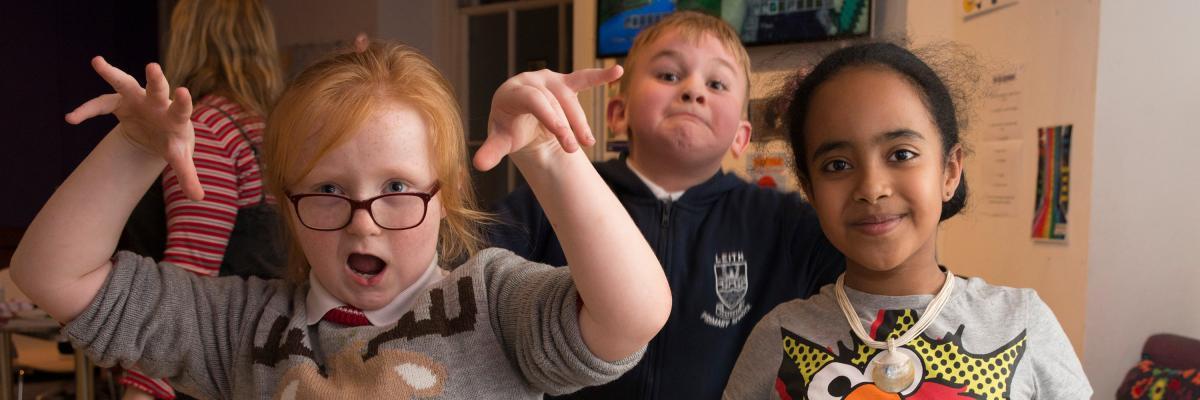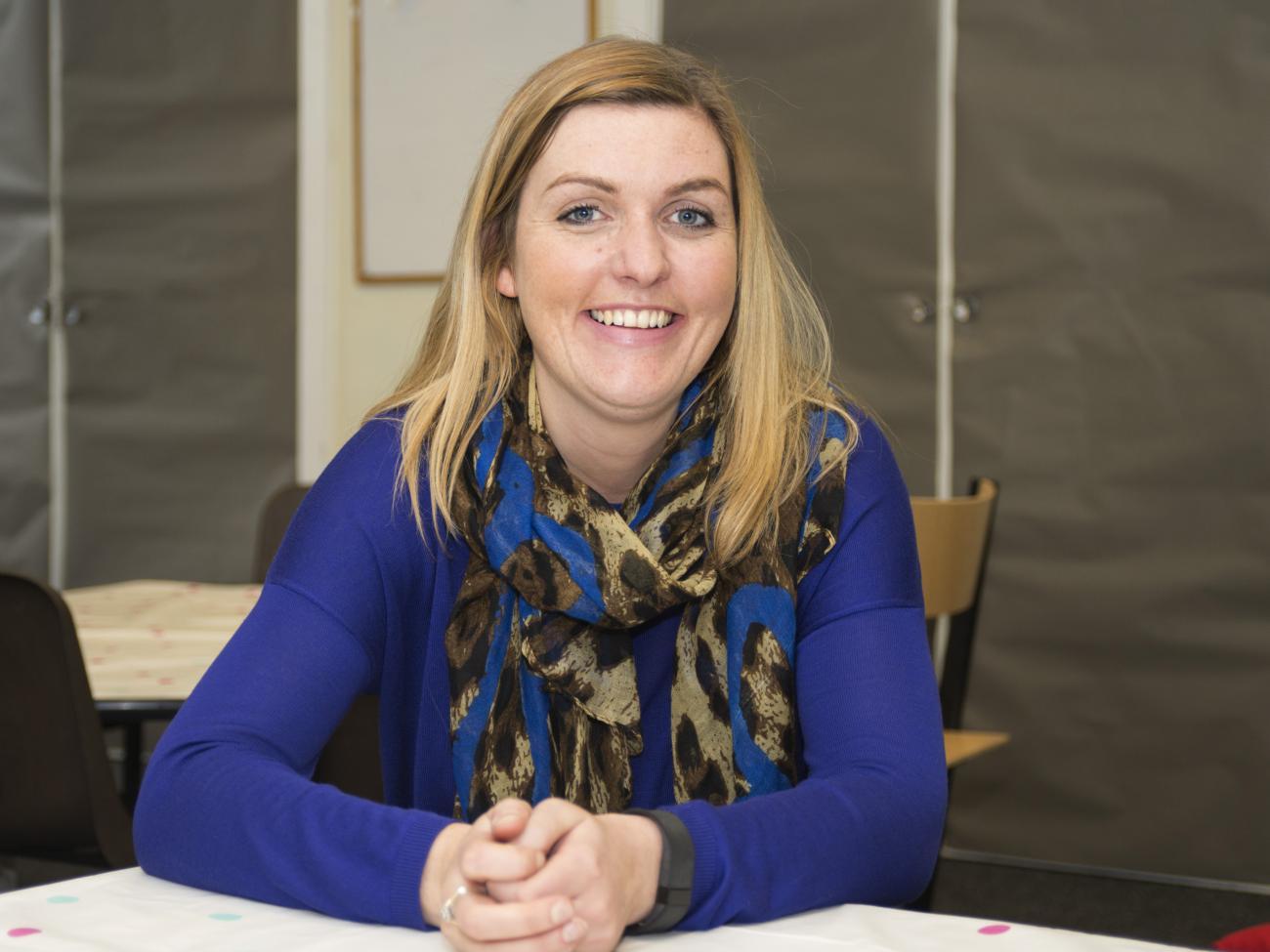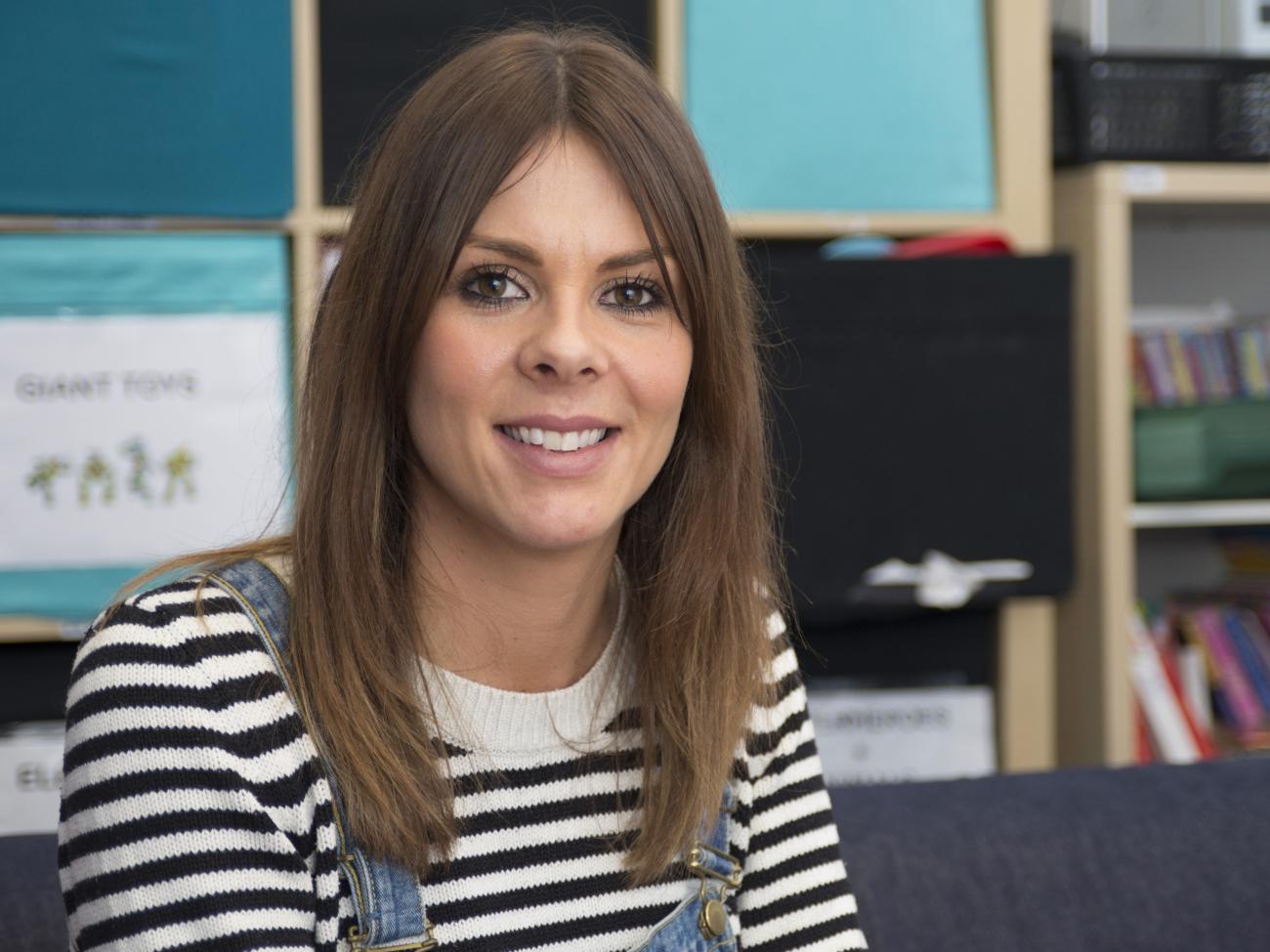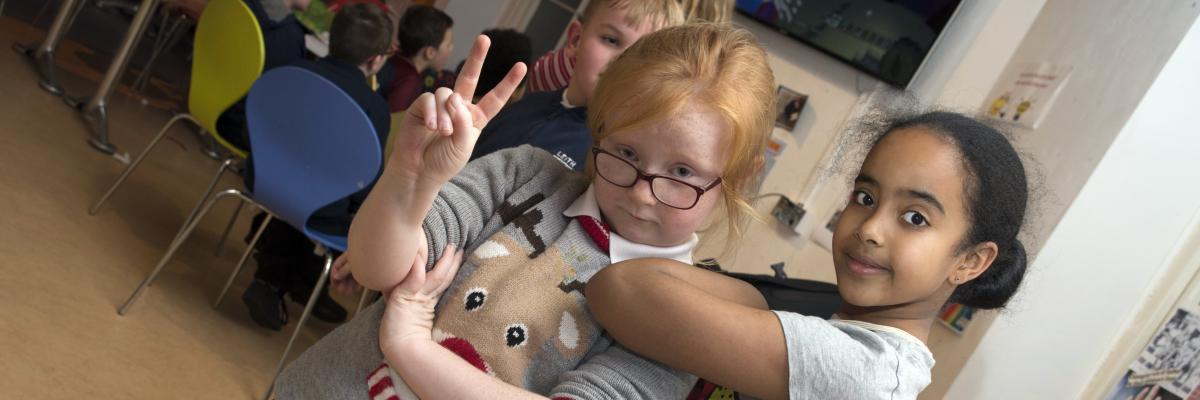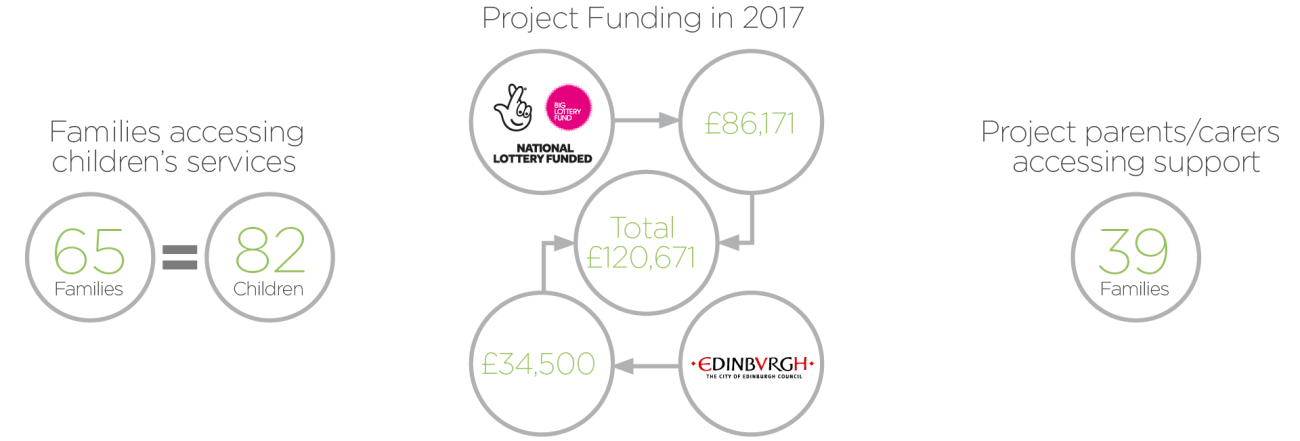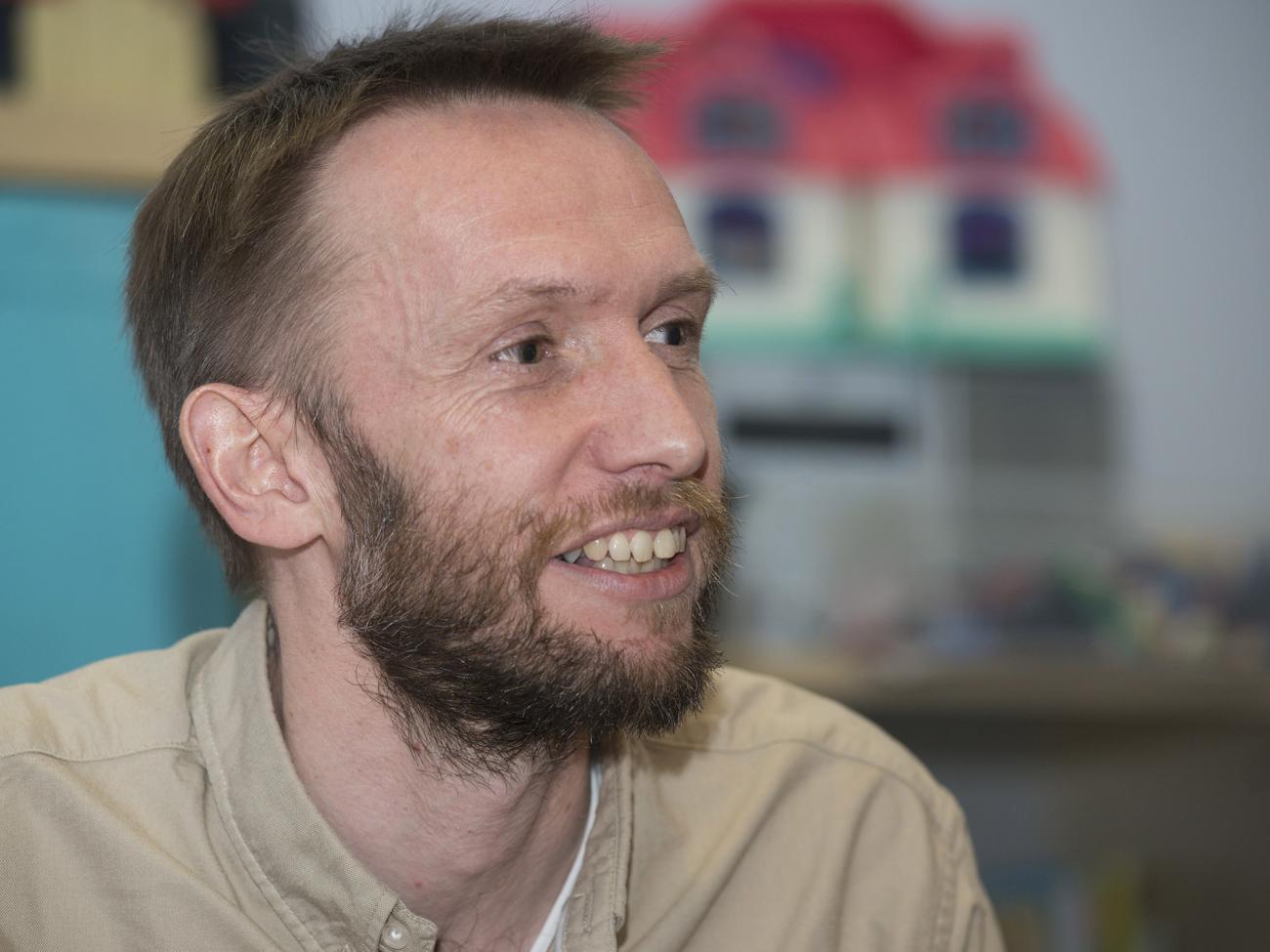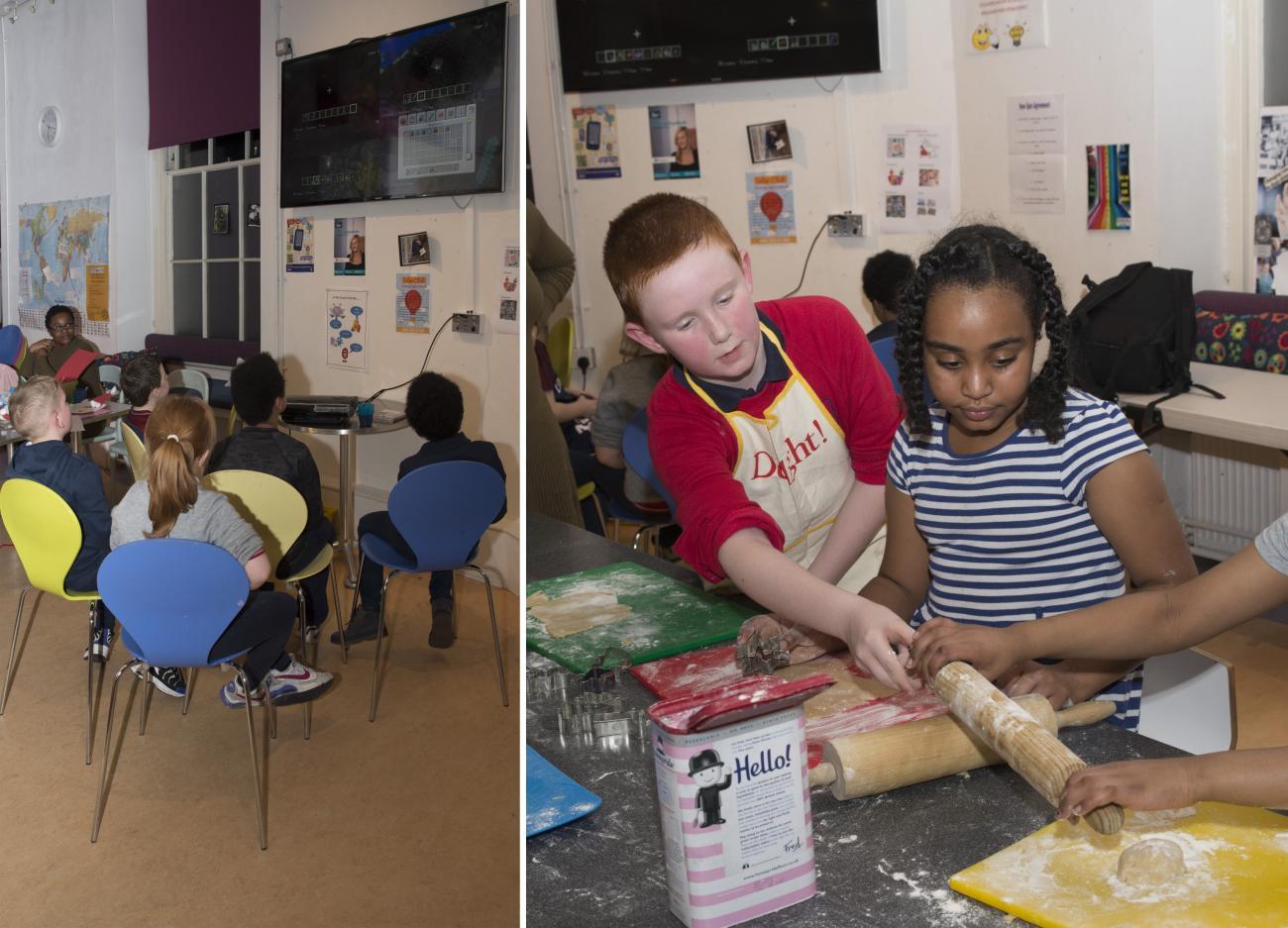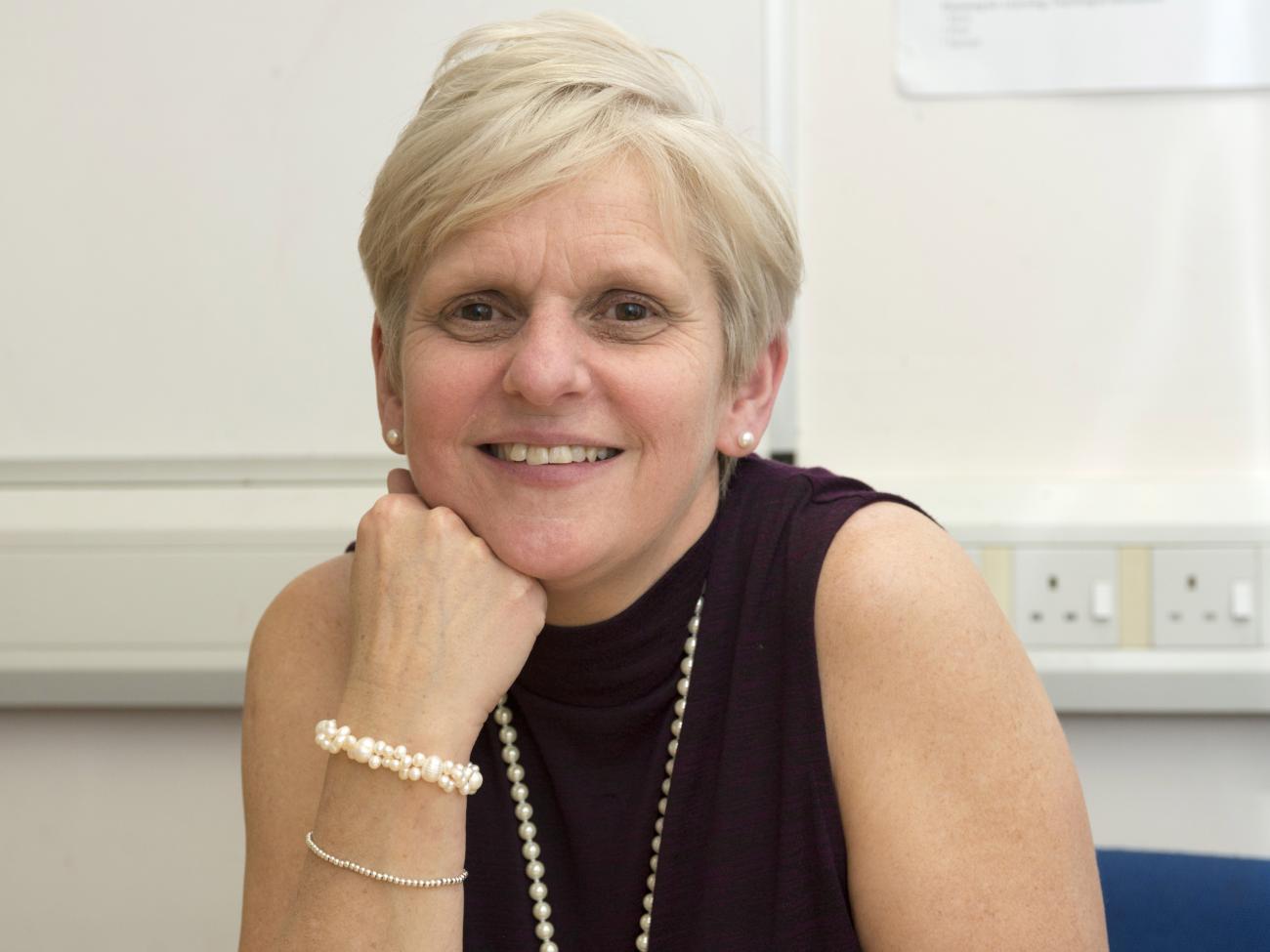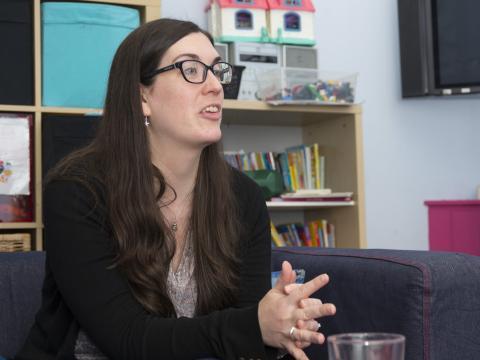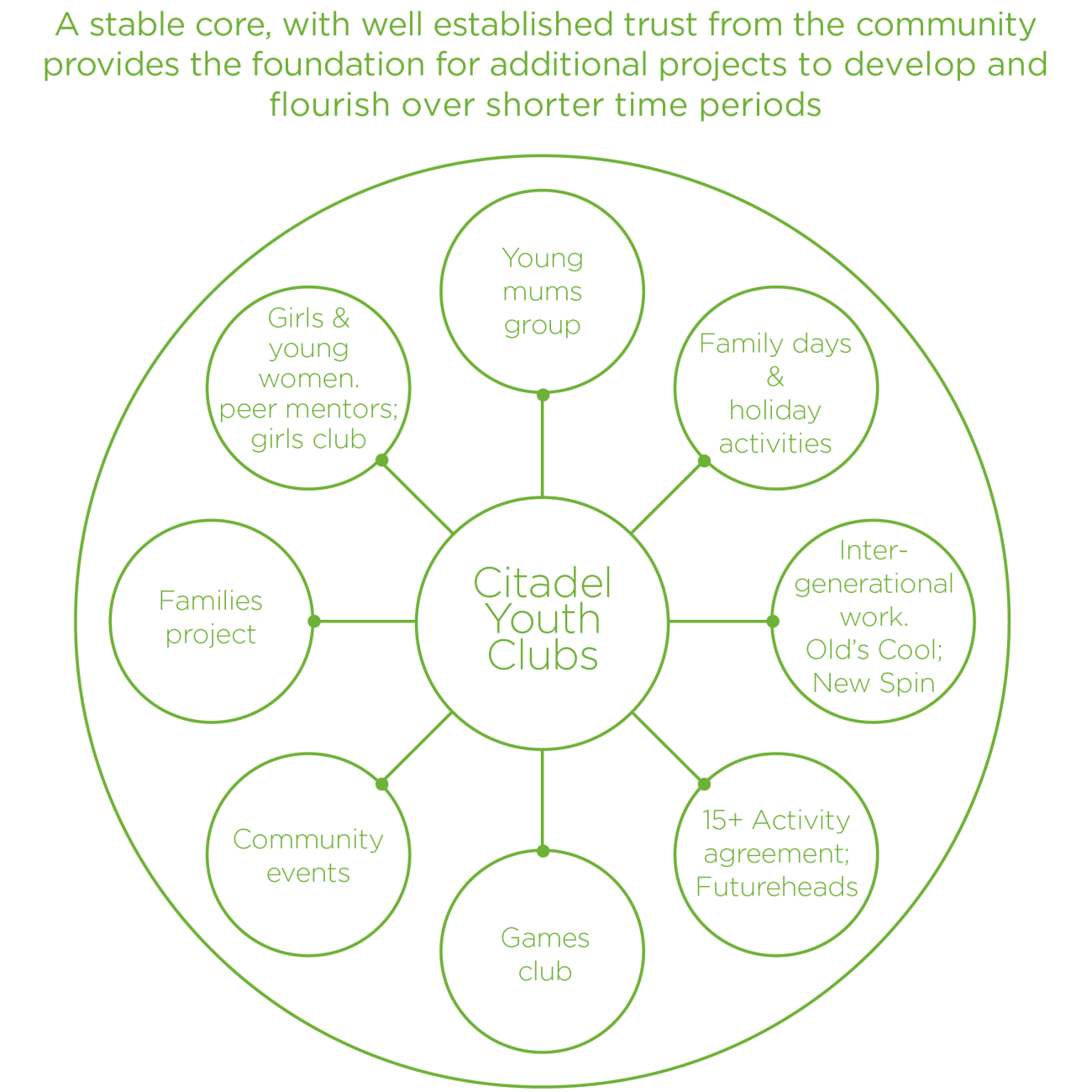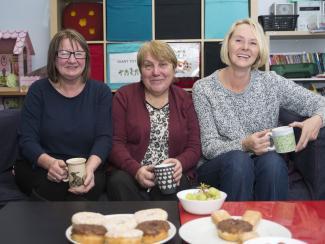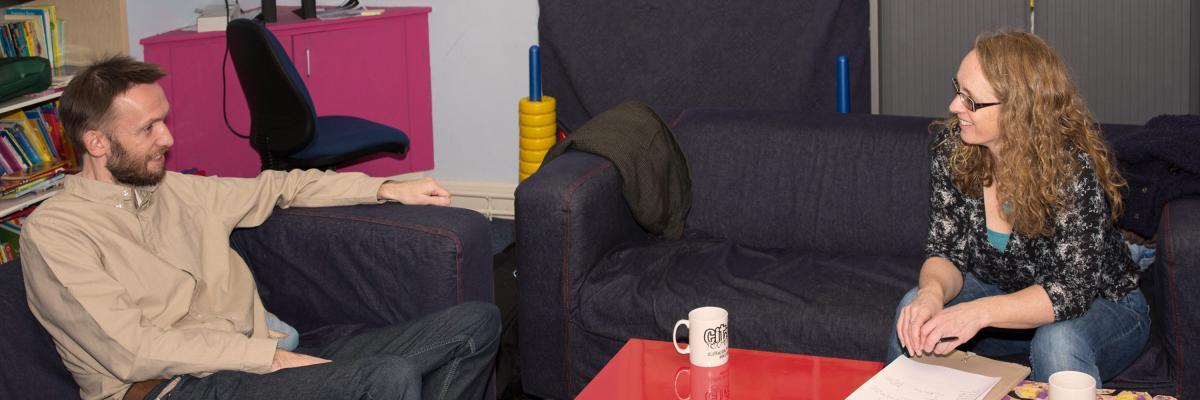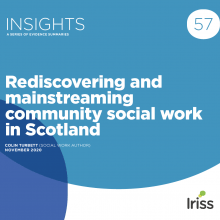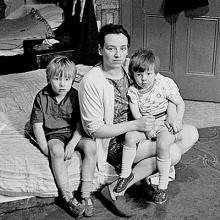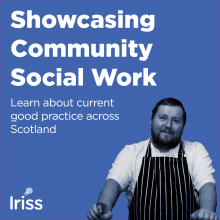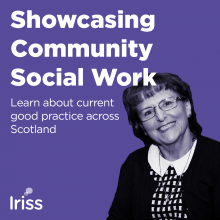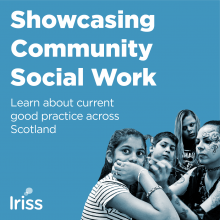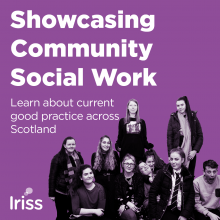This is one of seven case studies that celebrates what ‘community social work’ is and has to offer.
It demonstrates how working closely and in partnership with communities makes the best use of resources, generates new capacity and greater agency, builds resilience, and supports preventative approaches that make a real difference to people’s lives. It also has much to offer at a time of reduced public spending and pressure on services.
A family worker at the Citadel Youth Centre opened up a community based support to families previously reluctant to engage with professional services.
The Citadel Families Project has been able to develop and succeed because it is rooted in the Citadel Youth Centre. As an established member of the Leith community with existing relationships with those who attend its youth clubs, the Citadel is well placed to identify where additional support may be needed. Citadel became aware that although parents and carers were comfortable talking to staff at the youth centre about issues and concerns, there was often a reluctance to seek out more formal support through social work or schools.
Andy Thomas is Deputy Manager. His background was in community education and social work before joining Citadel in 2005, and he has a particular interest in the crossover between these two areas. In 2014, through the Early Years Change Fund, he was involved in setting up a pilot programme to introduce a family worker to the youth centre, to support parents and carers of children attending the Citadel. Like the youth centre itself, the family worker provided drop-in support, as well as more intensive one-to-one support where it was needed. The pilot was a success and subsequently longer-term funding has been secured from the Big Lottery ‘Investing in Communities’ fund.
The support given by the Families Project can be wide-ranging and might involve signposting support services, helping parents and carers to engage with social work or school support, accompanying them to meetings if required, or helping fill out forms. Over the the last ten years they have increasingly seen a need to deal with poverty first and then address other issues. Much of the work is crisis support for families. The organisation’s child-centred approach makes it clear that they are there to help the parent to help their child. Clear boundaries are set so the parents and professionals know that the family worker is there as a support, but not as an advocate.
For us to work effectively with the parent, we need to first know the child - what they are good at and what they are struggling with. Parents see how we are with their children and they like that. They might feel they only hear negative feedback about their child’s behaviour or attendance elsewhere, but they come to Citadel and there’s a worker telling them all the things the child has done well.
Liz Duncanson
Family Worker
Citadel Families Project
It’s about having fun, it’s about talking about the issues in an easy to work way, so if we go into the school to work with an individual child for an hour out of their day, it’s about taking the Citadel approach into that environment.
Ruth Kerracher
Children’s Worker
Citadel Families Project
How the Families Project operates
Working with the children
Ruth Kerracher has been a children’s worker on the Citadel Families Project since April 2016. She works alongside Citadel youth workers within the Junior (7-10 years) and Intermediate (10-13 years) clubs, developing programmes and activities. Ruth’s role is to co-ordinate support for the children who have been referred for supported places in these clubs (approximately 50%). Ruth runs the Junior Support Group, providing early intervention for children needing extra help, and provides individual support. She also helps children within the Families Project to work towards their chosen and agreed goals.
These goals will often address areas such as behaviour, isolation, bullying, risky behaviour or offending through socialising and making friends, the development of non-directive play, art and creative activities, among other approaches. Of the 70-80 children on the Citadel’s database, Ruth will support around three or four individually each term. On average, a child will get around twelve weeks of individual support.
The Parents’ Group
Parents of children already in the Youth Club can drop-in to the Parents’ Group that meets weekly at the Citadel. The family worker facilitates the group, which meets for two hours on a weekday morning for breakfast, providing activities such as cooking on a budget, social media training and benefits advice. FareShare provides food for the group, which is bagged up for taking home or used for cooking. Because it is available and they are encouraged to take what they can use, the initial reticence to take what’s offered has gradually receded. New members are encouraged by existing members to follow suit. Clothing donations are also available to the group. While the focus is on the end benefit for the child, the team acknowledges that to achieve this they are looking after the parents too.
Liz Duncanson began her work with Citadel in 2012 as a children’s worker, moving to her current role as family worker in April 2016. 'For us to work effectively with the parent, we need to first know the child - what they are good at and what they are struggling with,' Liz explains. 'And it’s all about relationships - if we want to get good outcomes for the children we need to have good relationships with their families.' That’s what makes Citadel very different from other family support centres.
One of the great strengths of the Parents’ Group is that it provides a safe space - people find support from peers and can develop their own networks. This helps to reduce the isolation which amplifies existing difficult circumstances. Around nine to twelve parents received individual support over the last year.
A further one or two used the drop-in each week. Liz gives an example of one of the parents who isn’t receiving one-to-one support, but had approached her with concerns about her mental health, family expenses and not having a working fridge. 'So one of the things on my list for this week is to apply for a fridge for her, get her a GP appointment and get her in for a one-to-one.' This sort of crisis response is given over and above the individual family support.
The school outreach
In addition to her work with the group, Liz provides a weekly drop-in at Trinity Primary School. Having a regular time and private room where she can be contacted in an accessible location gives the parents the opportunity to seek support in a low-stress environment and to build relationships. 'The fact that’s it’s voluntary is huge,' says Liz. Her association with the Citadel can give parents the confidence to seek support from the school through her. Some go on to deal directly with the school, while others prefer to maintain the support of the family worker longer-term.
The team
Good professional supervision and self care is critical. This ensures that the family worker has time with the team lead to share and reflect on difficult issues. The team also provides a great deal of support to each other and has a fully joined-up approach in how it works with the families.
Working with other professionals
The initiative is working because it has support from all parties – professionals and families alike – facilitating a healthy and open debate about issues arising relating to the child, and helping to build the understanding of what is going on in the child’s life. The trust built with parents and children is similarly developed over time with professionals. It stems from a long history of consistent and principled activity in the community and in conjunction with other support professionals.
Results
Formal evaluations to date have covered in-depth interviews with families and professionals involved in the project. These interviews include self-evaluation, and pre- and post-engagement ratings from the parents.
The initial fourteen month pilot was also evaluated by an MSc student. The benefits that the student was able to demonstrate resulted in a successful application for Big Lottery funding, allowing for extension and expansion of the project.
The evaluation of the Families Project pilot showed that the reach of Citadel has been extended beyond the children of isolated families to include their parents. A ‘multiplier’ effect is apparent, as isolated parents make connections with other parents through the drop-in club, arrange play dates for their children and become noticeably more willing to engage with head teachers and social workers, particularly if accompanied by the family worker. The option of holding these meetings on Citadel’s premises has also proved successful. By association, the family’s trust for the Citadel team is gradually extended to the other professionals that Citadel is able to introduce to the parents, such as social workers.
The results of this willingness to engage voluntarily through the Citadel and the family worker have included some social work cases being closed and some school referrals into Social Care Direct being suspended.
The key benefits that the school reports include:
- Markedly improved parental engagement as barriers reduce
- Working in a joined-up way with other professionals
- Being able to constructively work together with the parents and other professionals in the best interests of the child
- A ‘multiplier effect’ – small changes having a ripple effect across families and the school community
Anita Bell, social work, sees tangible improvements in child wellbeing, families’ abilities to cope and in their overall willingness to deal with social work.
Families feel supported, listened to and report life-improving changes in their situation and outlook.
Children enjoy the youth club, playing with other children, taking part in activities and see their own confidence and wellbeing grow.
Citadel makes us all feel equal
Citadel Parent
Citadel brings people togetherCitadel Parent
It’s absolutely brilliant having the family worker in his school now one day a week. You don’t have to make an appointment and I’ve used it quite a bit. Sometimes you just need someone to talk to.Citadel Kinship Carer
Case study
In one family there was a child who had long-term poor school attendance, stemming in part from concern over the mother’s chronic health problems. Social work was involved, but although there were short-term improvements, school attendance dropped away again. Although not in school, the child attended Citadel, which gave structure, and provided adults to talk to and the opportunity to socialise and try different activities.
Encouraged by Citadel staff, mum started going to the Parents’ Group. It was apparent that she was very fearful of professionals after a lifetime of daunting experiences with them. Her social worker was supportive, but the ‘social work’ hurdle made the relationship challenging. However, on joining the Parents’ Group the mum found it was a supportive environment with no judgement. Over time she realised her opinion and voice mattered in the group. Quite quickly she found she could take steps to improve her situation, starting with just getting out of her home – a massive challenge because of her health issues.
Liz was very encouraging and reassuring for the mum, the focus always on looking forward and not attributing blame. Collaboration by the social worker and Liz working together on the case and both attending visits and meetings, helped the mum to start accepting the support on offer. Although her child’s school attendance didn’t improve, the mum’s health situation did and that in turn made things better across the household. When further unexpected issues arose, Liz was again able to help – they were able to plan things together, showing that all parties were interested in making things better for them. Over time they have seen a substantial difference in the child too – greater confidence, more relaxed, happier, less concerned about mum and re-entering education. 'To this day the mum still sings the praises of Liz and the Families Project, she got so much from it.'
On-going contact between families and the Citadel means that if there is further need in future it can be addressed quickly, with additional support services brought in early.
It’s easy to dismiss parents as ‘hard to engage’ when in fact some services make themselves hard to engage with!
Andy Thomas
Deputy Manager
Citadel Families Project
What worked well and why
The success of the Families Project is rooted in the core approach to gaining parental buy-in to the Citadel and making it as easy as possible for them to access help. Being open and welcoming to the parents, talking to them about their children and the activities they have been taking part in and not just speaking to them when there is ‘bad news’, has been central to helping the parents feel comfortable going into the building. This is about them seeing it as their own space too and trusting the staff.
This is built on over time, with parents encouraged to stay involved and feel welcome, through joint parent and child inductions and activities, such as Christmas parties and summer trips.
Citadel does not work with parents if they are not already working with the child. There is generally a time-lag between the child joining and the parents being directly engaged. This allows Citadel to protect its own value base as a youth centre first and foremost, with family work attached. It also allows parents/ carers time to get to know the Citadel and its staff before choosing to engage. This in turn, avoids any parental resistance from perceiving the Families Project as an extension of social work.
The parents have the opportunity to use the drop-in, build a relationship with the organisation, meet other parents, and build support networks. From there it becomes easier for them to seek out and accept the services that the family worker can introduce. Word-of-mouth communication is prompting parents to sign their children up for the the youth club so that they can access the Parents’ Group.
By bringing the family worker into the established Citadel environment, trust of the organisation has gradually extended to the project worker and the additional external services they introduce. Another important aspect in protecting the safe space they offer children and their families is in being wary of being co-opted into taking the role of schools or social work.
The Citadel Families Project succeeds because services are open to all, making take-up of help offered far more likely as it is provided to families in their own time and on their own terms.
Of the targeted referrals (roughly half of the children who attend the youth club), around 90% of the families subsequently take-up the services offered.
It’s different from other family support services where it is the family that signs up for support. This is first and foremost a youth club for the children, with additional specialist support that the family can access by choice.
The strength of the project is in its flexibility to respond to the needs of individual circumstances and that it is based in a location that the children and their parents are coming to anyway.
The project works because:
- The relationship with staff and the centre is strong, and it is the parents’ own choice to buy into it
- Citadel offers a holistic package of support, at a venue that families already attend because they enjoy the activities
- The children and parents can identify their own goals, so they have ownership and control
The view from the school
Kirsty Martin and Jacqueline Scott – Deputy Head and Head Teacher at Trinity Primary School
Kirsty and Jacqueline were aware that Citadel already had a good reputation in the community and was popular with the children from the school. Willy Barr, Manager at the Citadel, and Andy contacted the school in the first instance, to see if Trinity Primary School would be interested in support at lunchtimes for children having difficulties. From there, the school began involving Citadel in child planning meetings and more recently was invited to get involved in the Families Project – 'Partnership working in schools is growing and rightly so – looking after the wellbeing of a child is not something we can do in isolation,' Jacqueline explains.
The school has been bowled over by the change that they’ve seen in the first eighteen months of the Families Project. It’s seen results in the shifting views of the parents and children, with parental engagement with the school increasing and the expectations of children and parents growing. Examples are given of parents who had previously been so wary that they wouldn’t step inside the school building, but now are comfortable in the school and build involvement through helping with clubs and speaking with teachers and other parents in the playground. Jacqueline provides an example - 'Starting this year, there was a mum that we couldn’t get over the threshold of the school, but Liz now has her coming in on a weekly basis to the school and she’s looking so much happier. And it’s not lost on the children that it’s a joined-up approach and the support is there for them at the school and at Citadel.'
They also find that having Citadel involved, for example, in a discussion with the school, parents and social work, can calm the situation, increasing the chances of a better outcome for the child. 'Liz is so good, she’s so above and beyond and so keen to do what’s right for the families, we’re absolutely delighted to have her, she’s a real asset,' says Kirsty.
…so far it’s proved to be absolutely great. We simply can’t imagine not having the family worker here now, our greatest concern now is that the funding eventually goes and we lose the service. Sustainability is so important for the families.
Jacqueline Scott
Head Teacher
Trinity Primary School
Wider benefits
The Families Project moves social work from a ‘them and us’ perception to one where it’s ok to ask for help when you need it. All parties can work together with trust and understanding to make things better, and there is confidence that the help given will be provided with the child’s best interests at heart.
The ‘social capital’ of the project is substantial, with the positive effect spreading across the family and into other parts of the community, as parents become more involved and help each other to seek support.
Challenges
Evaluation is welcomed as it shows the good work being done with public money. The challenge is in ensuring that the questions asked actually show the breadth of hard and soft outcomes achievable. This is felt to be improving over time through engaged discussions with funders.
Council funding is increasingly looking for measurable outcomes, but for the core youth club this isn’t always the most appropriate way to assess success. Shorter-term projects may lend themselves more readily to narrower measures, but these projects would not be possible without the vital, on-going support given by the council to the less measurable core youth club. Other funders can be found for the shorter-term projects and smaller funders tend to have more scope to flex their criteria in response to the development and evolution of a project so these are often looked to for funding new activities.
Retaining the balance between the supported and unsupported places is an on-going challenge, but it is important to maintain the spectrum of life-experience of children and to ensure the needs can be met.
Similarly, the principle of ‘child first’ is one they have to work hard to maintain, resisting the needs of adults being prioritised. 'It’s important to our model that we work with the child first and foremost. If we were referring the parent we feel the parents would start to see us in a different light and stigma could creep in.
No matter how nicely they do it, if a professional is telling a parent that they should go on a parenting course, the parent feels they are being singled out as bad parents. We don’t want any parent’s first encounter with the Citadel to be because we’re telling them that they need help. The first point of contact is, ‘This is something your kids can enjoy – and from there, there are other things we might be able to help with, if you want’.' - Andy.
Future plans
An external evaluation, in collaboration with the Centre for Research on Families and Relationships, is currently collating statistical and qualitative results from the programme, to assess the overall effect of the initiative.
There are plenty of areas that the team would like to work on to further develop the support they offer. These include:
- Developing the Families Project for families with teenage children
- Addressing risk-taking behaviour online, with support from other agencies
- Making more training available for parents
- Working with Dads more (most of the engagement to date is with Mums) either within the group, separately and/ or through other means
- Providing more structured parenting support (which works best on a one-to-one basis, rather than in the group)
The view from social work
Anita Bell, children and families social worker in North East Edinburgh, refers children to the Citadel. She values the clubs and activities they provide for the young people; the children enjoy the activities and find the Citadel workers easy to talk to.
As parents and children find it a safe space, Anita also holds child planning meetings on site and this helps them achieve positive results. Citadel is seen as a non-threatening environment and as such, it and its staff can help social work to get an opening with families where there might otherwise have been resistance, fear or misunderstanding.
Anita explains, 'They can reassure the parents, be present at meetings – the workers here can really help to build bridges between us and the families that we work with in lots of ways.'
Anita has worked closely with Liz on a couple of cases where the Parents’ Group in the Families Project has acted as a bridge to bring all the parties together. Parents will come to the Parents‘ Group because it’s something that they enjoy doing, 'They get a lot out of it.'
She views reputation as a fundamental strength of Citadel - it is not seen as a ‘service’. For the children it is fun and exciting and the experiences and opportunities offered are a big deal for the families. The Parents’ Group is a massive support, rooted in the trust that exists between them and Liz. This means they are free to share experiences, thoughts and ideas in a safe space. And over everything, the workers are absolutely non-threatening, putting everyone who enters the building at ease.
I can’t stress enough how good a resource it is for the families we work with and also for us in social work.
No matter how non-threatening we in social work are, there are expectations and concerns that parents might have about our motivations, so sometimes dealing with Citadel helps us to get through the door.
Anita Bell
Children & Families Social Worker
North East Edinburgh
Key points
- Citadel works from a community focused base, open to all for additional support as required.
- The stability of the core service (the youth club) provides a credible basis for further, short-term funded work within the community, such as the Families Project.
- Citadel responds to individual situations – it’s not a ‘one size fits all’ approach.
- The focus of the organisation is always on the child’s wellbeing.
- Taking the time to build trust, a non-threatening approach and familiar, welcoming surroundings aids the acceptance of other more formal services by families.
- The focus of the Parents’ Group on sociable aspects – sharing food, chat – opens the door to them seeking further assistance.
- Dealing with poverty is the first priority.
- The time-lag between the child joining and further family engagement is important in building trust and a willingness to engage.
- People aren’t hard to reach, but the services they need might be.
- The team has the flexibility to offer help when people ask for it, not just when they’ve hit a certain criteria.
- Asking for help is a natural step rather than a bureaucratic process, which suggests some sort of failing. It avoids: 'When I asked for help social work wasn't there, and then when I failed they came in and acted like I’d messed up!'.
- Some see social work as controlling and ‘done to people’, whereas this is done with and for them. 'Social work earns the right to take control while offering help – if it’s just about control you may as well have called the police!'.
- The culture at Citadel is strong and consistent.
Appendix
About Citadel
Citadel is an established part of the Leith community with an open-door policy. Some parents and carers were attendees themselves in their youth. Leith is a very mixed community, from affluent through to some of the most deprived areas in Scotland.
The Youth Centre has been a feature of the Leith community since 1980 and over time has evolved and expanded in reach and in facilities. The building was extended around 10 years ago to allow an increase in what it could do. It is largely used by Leith residents, but some choose to come in from further afield if they have a Leith connection. The youth clubs cost only 50p per session, with fund raising used to finance extra activities.
It’s been community based since the beginning, with local parents looking for somewhere safe for local young people to play. It was funded jointly by education and social work – a youth club open to all, but with a support structure in place for children that needed it. 'That combination of the two – the targeted work and the universal work is the essence of our philosophy and value base. Both aspects benefit from being put together, rather than being separated out,' explains Andy. This approach and building the relationships over time removes stigma and allows flexibility in responding quickly to individuals as the need arises, for example if bullying becomes an issue for a child at school.
The structure of the organisation – a bit like an octopus, with the youth clubs at its heart and additional project ‘legs’ – is what allows the community-based approach to flourish. The body is a constant, which facilitates the build in community engagement and trust. This has longer-term funding. The ‘legs’ tend to be short-term, more transient projects which target particular groups or topics, but with their brief duration would not in themselves generate community buy-in. Examples are employability work for 15+, intergenerational work, work with young mothers, and the Families Project. The core youth club activity means they are involved in the community and can, therefore, identify need as it arises. From there they can investigate possible solutions and funders.
The youth club is open to anyone – and has a waiting list. Half the children are open applications and the other half are referred in, primarily by schools and social workers. When a space is available, parents and child are invited for an induction. Referrals can be for issues such as positive socialisation (due to social isolation or difficulty socialising), but the team works hard to keep the balance between referred and non-referred children, to ensure the mix in their community and so they are confident they have the resources to provide appropriate support. The referral form asks why the child will benefit, but the reasons behind it might be varied. The Under 8 group (aged 5-7) started a few years ago for children who need a bit of a head-start on socialising and the team do a lot of work around sharing and emotions in that group.
Citadel has a profound effect on the children and families who engage with it. Cathy, Gwen and Elaine, kinship carers for their grandsons who all attend the youth club, have found friendship, peer support and specific help when they’ve needed it through meeting at
the Citadel.
For me, it’s all positive - they are so good with my grandson and they know what he needs to help him. What makes it special is the way they interact with the kids, they work with us to help them and they know them really well.
It’s been really beneficial for my grandson - he finds it hard to open up to me, but he talks to them and Citadel, I can say hand on heart they can’t do enough for you.
Before I came here I was feeling on my own - being part of the Citadel community is great, and the support of everyone here is amazing.
Cathy, Gwen and Elaine
Citadel Kinship Carers
Acknowledgements and thanks
Thanks to everyone who contributed to this research project. With particular thanks to Andy Thomas, Anita Bell, Ruth Kerracher, Liz Duncanson and the children at Citadel. Thanks also to Kirsty Martin and Jacqueline Scott at Trinity Primary School. And thanks to kinship carers, Cathy, Gwen and Elaine, for sharing their thoughts.
This document has been prepared for Iriss by Fay Purves CMRS of Creative Art Works CIC, a Community Interest Company. Unless otherwise stated, design and photography is by Lindsay Snedden LBIPP of Creative Art Works CIC.
We would also like to thank the Community Social Work Advisory Group members for their valuable input to this work: Trisha Hall (Scottish Association of Social Work), Stuart Hashagen (independent), Andrew Gillies (Social Work Scotland), Graham McPheat (University of Strathclyde), Keith Moore-Milne (Glasgow City Council), Kerry Musselbrook (Chair & Project Lead, Iriss), Liz Timms (SASW member), Colin Turbett (social work author and activist).
For more information about this work contact Project Lead: kerry.musselbrook@iriss.org.uk
